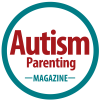-
About
- About Listly
- Community & Support
- Howto
- Chrome Extension
- Bookmarklet
- WordPress Plugin
- Listly Premium
- Privacy
- Terms
- DMCA Copyright
- © 2010-2025 Boomy Labs

Listly by Autism Parenting Magazine
Many autism experts claim that several types of foods and diets can effectively treat or help children and adults with autism spectrum disorder (ASD).
Download our FREE guide at:
https://www.autismparentingmagazine.com/probiotics-and-autism/

Many autism experts claim that several types of foods and diets can effectively treat or help children and adults with autism spectrum disorder (ASD). Some autism researchers also believe there is a strong link between the functioning of the brain and the gut. But with the very large number of foods and recommended diets out there, how can you determine what works best for your child and adult family member(s) with autism?

As a parent, it can be difficult to watch your child struggle with the abdominal pain, constipation, and other discomfort common for people with autism. Too often, those gastrointestinal (GI) symptoms are accompanied by increased anxiety and oversensitivity.

The bacterial content in your gut has immense impact on your overall body health. [Probiotic](http://www.probioticshub.com/probiotics-and-antibioti...

Encopresis is a common struggle for autistic children. The scientific term comes from the Greek en– (“inside”) and kopros (“stool”). In other words, “you have poop stuck inside you.” When simple constipation turns into a hard, dry blockage, soft stool leaks around the block. The child usually can’t control the leakage. Often, the encopresis develops into a vicious cycle. It hurts to go to the bathroom, because you didn’t go before. So you don’t go to the bathroom again.

Finding the best probiotics out there it's not an easy task | Probiotic Packed Meal Ideas For A Hea...

It’s 7:30 am and we are waiting in the car for our carpool friends to meet us. My happy boy is in the back giggling about something—I will never know what. An idea has been brewing in my mind for a bit, and I decide today is the day to try it. I tell my boy that he is big now (four inches taller than me at 15), and he needs to start getting out of the car by himself, just like his carpool friend does. I tell him step by step. “You need to take off your seatbelt (he mastered this just recently), put on your backpack, open the door and close it, and open [the] other door and get in.” I confirm with him “OK?” He responds “OK.” His response gives me no confidence this will happen. “Yes” and “OK” are his default responses. Our carpool friends arrive. My boy gets out of the car independently and gets into the other car. I even get a wave goodbye. I send up prayers of thanks. He did it! All by himself! The other mom is applauding for him and nodding her head at me. She gets it.

Pure Life Nutrition is the one stop solution to your nutritional needs. Supplements available here are of high quality, non-toxic and organic. We a...

A suitable microorganisms equilibrium enhances and put wellness advantages out. Probiotic safegua...

Sleep problems are common amongst children. For children with autism, sleep can be even more challenging. Studies show that up to 80% of children with autism have some sort of sleep difficulties. Most often it is due to difficulty falling and/or staying asleep. The goal of this article is to review sleep hygiene and discuss behavioral approaches to help promote a better night’s sleep.

Recommended posts about mental health issues, management & recovery from depression, anxiety, and other mental issues in relation the autism spectr...
